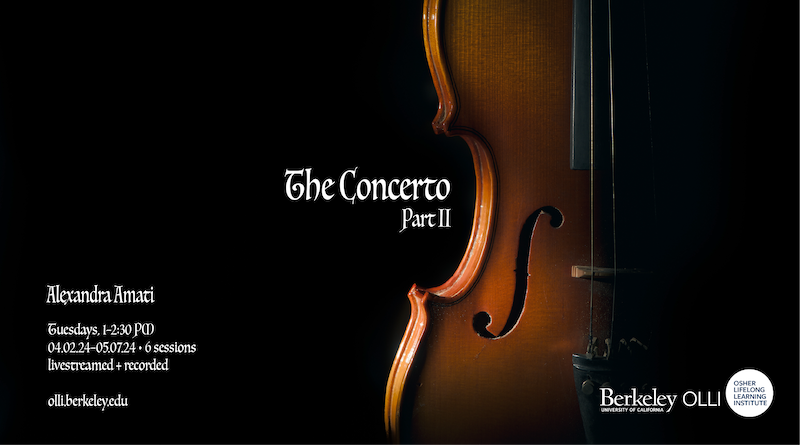The Concerto, Part II

This course starts where the first (The Concerto: style, form, and context in its first century) left off. We will explore the genre of the concerto during the romantic and post-romantic period, with a brief excursion into hybrid forms at the turn or the 20th century. The presentations will focus on the evolution of the concerto, its expansion in terms both of time and performing forces, as well as its changed role in society, including its use as a political tool. Composers will include Beethoven, Chopin, Schumann, Brahms, Shostakovich, and others.
There is no need to have taken The Concerto: Part 1 to fully enjoy this course.
Faculty Bio
Alexandra Amati holds a BA/MA in Slavic Studies from the University of Pisa, and a PhD in musicology from Harvard. She is Professor Emerita at the University of San Francisco, and is currently teaching and doing research at Harvard. She has just finished a book on women and misogyny in opera.
This is a Livestreamed + Recorded Course
- Classes will stream live on the scheduled day and time.
- Classes will also be video recorded.
- You must be a current OLLI @Berkeley member to register. Learn about membership, including our fee assistance program.
Schedule Highlights
- Course starts on Tuesday, April 2, and ends on Tuesday, May 7
- Classes meet for 6 weeks, 1.5 hours per session (1–2:30 PM)
- Videos will post on Fridays in Member Dashboards
- All course materials, including videos, will remain available to view and enjoy through May 31
Member Praise for Alexandra Amati
Prof Amati is a pro. This was my third class with her and my husband and I will sign up for more. She had a lot to juggle with the lectures, sheet music, chat comments, music selections, and q&a, and she did admirably!
Her enthusiasm for the subject was strong & clear — I learned a lot!
I learned so much! I listen to classical music, but do not play or read music. Dr. Amati used portions of scores to highlight and explain what was going on in the music. This added a whole new dimension for me — it was great.
Faculty Q&A
- Read an interview with Alexandra Amati from our archive.